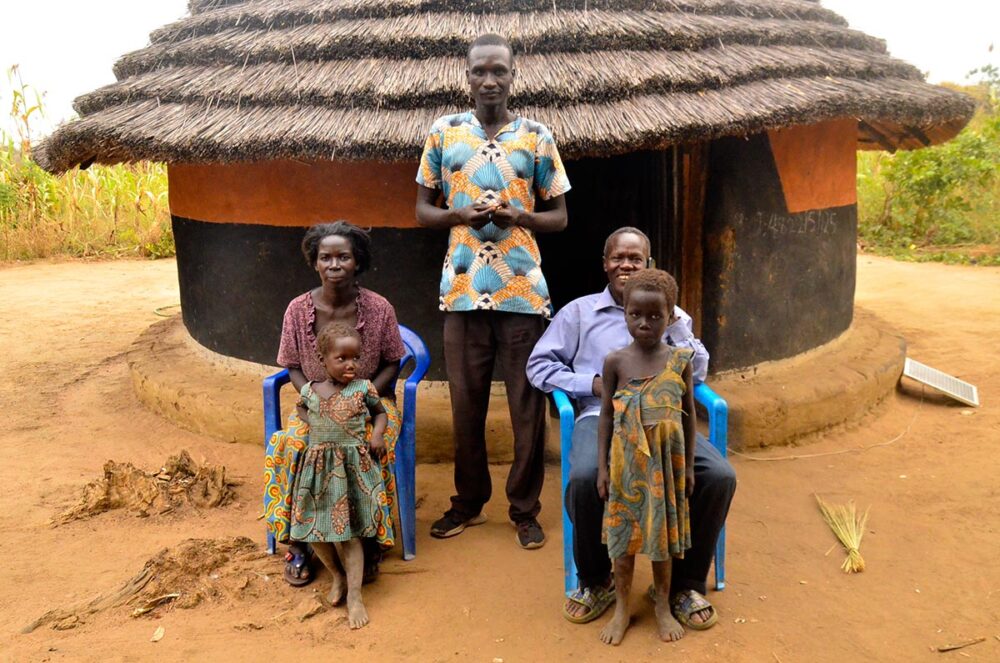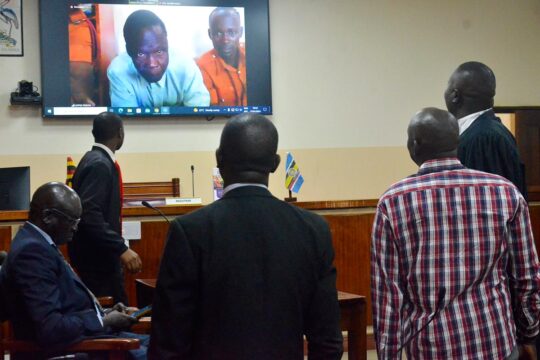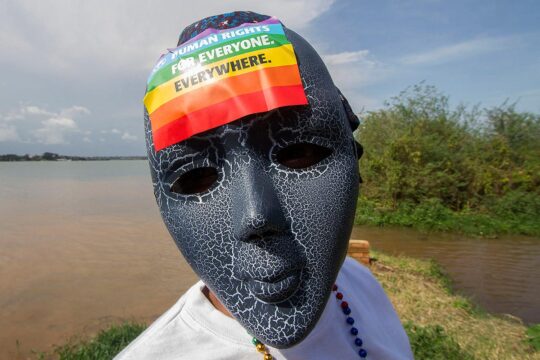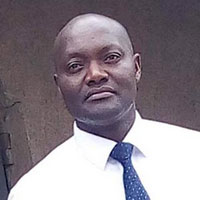Supported by a walking stick, Rosalina Aluma, in her late 90s and looking frail, is helped to sit on a mat in her family compound in Acut Cama Ceri, a remote settlement some 100 km west of the regional northern Ugandan capital Gulu.
The road to Aluma’s homestead in Acut Cama Ceri village changes mid-way from tarmac to a poorly maintained rural murram dusty road and footpath. The grass-thatched homesteads are only connected by footpaths, with no electricity or piped water, and it is an uphill task for visitors to find their way without a guide in this vast grassland punctuated by small woods.
Aluma, a widow and mother of 12, cannot tell her exact date of birth. In this sparsely populated countryside, where the tall, overgrown savanna dominates the landscape, only six of her children are still alive. Among them are the eldest son, Pastor George Abedo, 62, and Thomas Kwoyelo, 50, a former commander in the Lord’s Resistance Army (LRA) led by Joseph Kony.
Kwoyelo is the first and only high profile LRA soldier to be tried by a Ugandan court for war crimes. Aluma’s son faces 78 charges including murder, pillage, cruel treatment, violence to life, outrages against the dignity of humanity, torture, rape, enslavement, imprisonment, kidnap with intent to murder, and aggravated robbery.
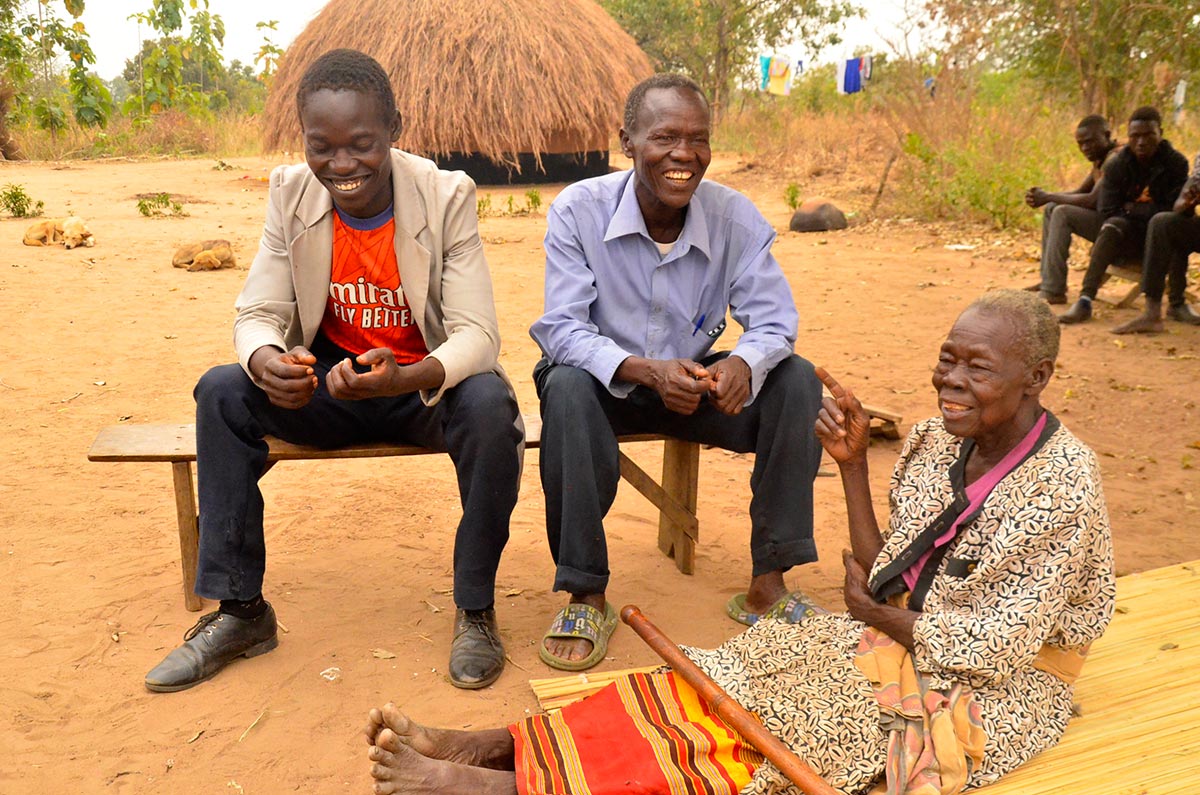
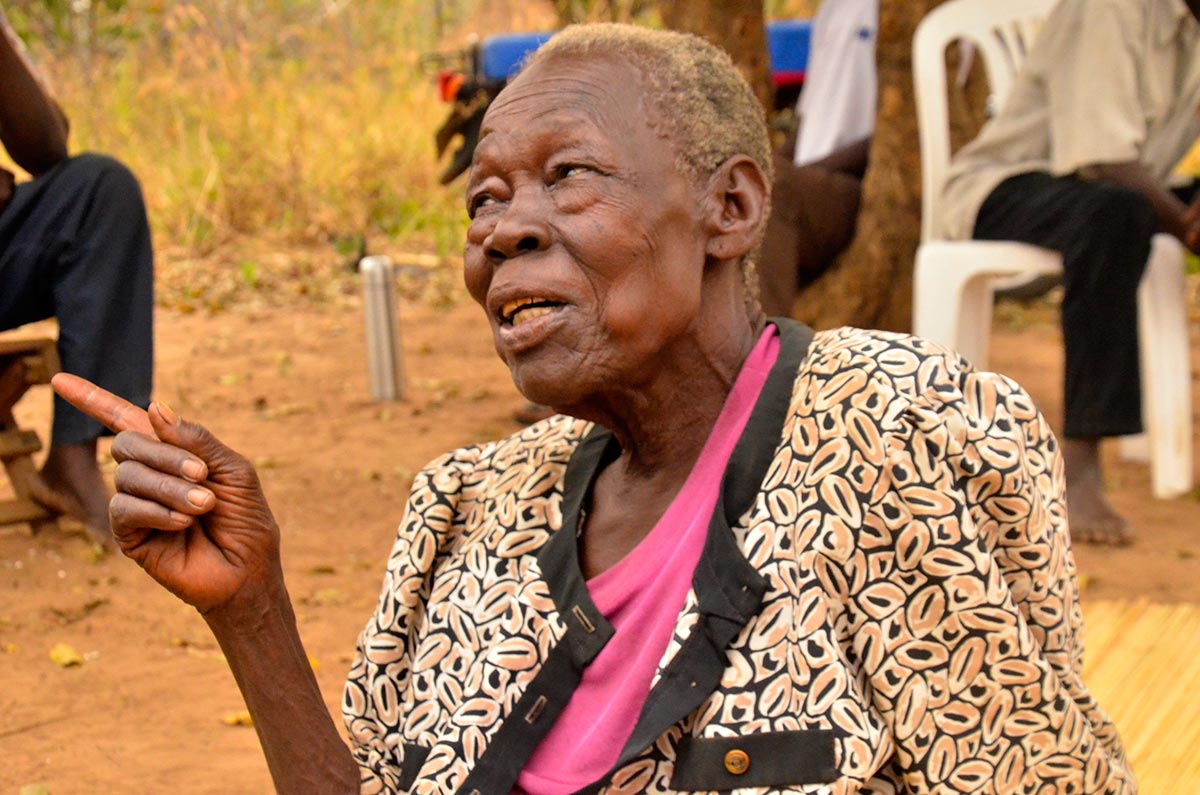
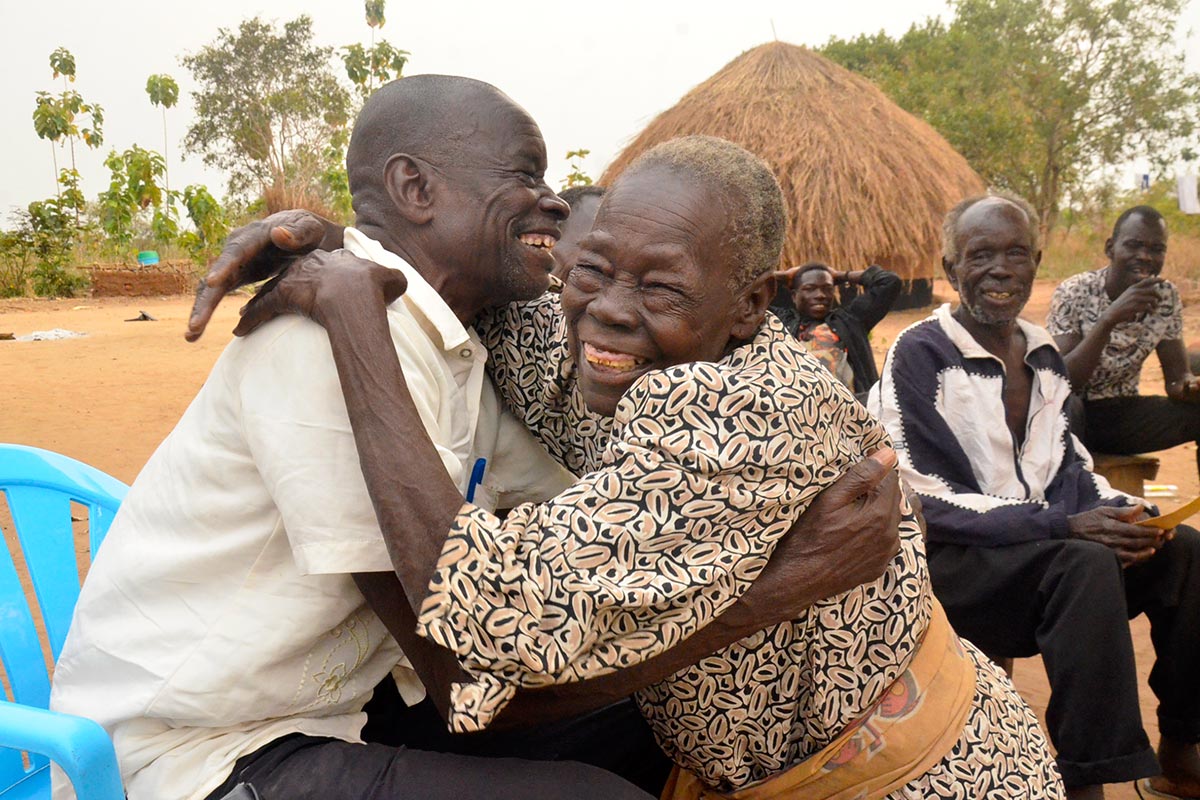
26 years in the bush with the LRA
The former commander, who was captured in the Central African Republic jungle in 2008 in a joint operation with American special forces, is Aluma’s fourth child. Her husband Jokon Dino Omona passed away in 2007 shortly after reuniting with Kwoyelo in the vast Garamba national park in Democratic Republic of Congo. It was there that the Ugandan government and LRA were engaged in peace negotiations which collapsed in 2006. At that time, the government took relatives of some of the fighters to Garamba at the rebels’ request, in a bid to defuse tension between the two parties during the stalled peace talks. Kwoyelo’s father was among them.
Kwoyelo was born in 1974 in Acut Cama Ceri, the village where his family still lives in the same compound. The young boy was abducted by the LRA at the age of 12, while he was in Primary Three at the nearby school in Pabbo township. “Kwoyelo was born and grew up here,” said his elder brother, Pastor Abedo, pointing to a site now surrounded by bushes in the homestead, which comprises three mud and wattle grass-thatched huts. With the structure growing old, it crumbled, and Abedo is instead putting up a three-roomed-semi-permanent structure – yet to be completed, but still an indication of how the homestead is being transformed to an iron-roof structure.
“He (Kwoyelo) was a good boy. He used to play the thumb piano and played solo music,” Abedo told Justice Info in the family compound. “He used to do fishing in the nearby stream and hunt for edible rats, his special delicacy.”
Abducted at the age of 12
At the time of his abduction by the rebels in 1992, Kwoyelo was on his way home. “When the rebels raided the village, people ran away, but Kwoyelo was from the garden and had stopped to hunt for birds. It’s where the rebels met him and took him away,” Abedo said. “There were other children that were taken at the time, because the rebels preferred young boys and girls for recruitment.”
“After the rebels left, we began checking on family members, but Kwoyelo was the only one missing. Later, people told us they saw him among the abducted children being driven away by the rebels.” It was a “sad moment”, he added, and “the family felt helpless because we could not rescue him, and the mother cried uncontrollably for days”.
Aluma, speaking through an interpreter, said that Kwoyelo’s rise in the rebel ranks turned out to be a nightmare for the family. At least 20 of the family members including Abedo, their uncle Moses Akena and one of the sisters were arrested by the military after Kwoyelo had become a colonel in the rebel forces. Some of them were detained for four years without charge – and later awarded compensation of 10 million Uganda shillings [almost 2700 USD] by a Ugandan court for illegal detention, she said.
One of Kwoyelo’s eldest sons, Moses Rackara, 27, who returned from an LRA rebel camp in South Sudan seven years ago, decried what he calls state harassment of the family. “One time we were arrested with my sister Fatumah Acam from 11 am to 11 pm when we went to court in Gulu for our father’s appearance, but no reason was given,” he recounted to Justice Info. Rackara is now a father of six -- three girls and three boys.
Rackara is one of Kwoyelo’s dozen children from multiple mistresses, according to accounts from his relatives. He lives in the family compound. “My dream was to be a driver, but I could not because of school fees. Now I am into farming,” Rackara added in presence of his other elderly relatives, Donato Lony and Gaudensio Atube, 85 years.
“I am sorry I begat him”
“Because of Kwoyelo, my family has been left a pauper, we have become a laughing stock,” said Aluma, showing her tattered clothes and pale, weather-beaten feet, which she shifted unconsciously during the interview. “I’m sorry I begat him (Kwoyelo), maybe if I didn’t give birth to him my family would be better.”
“We were forced to go into exile in South Sudan, and if it were not for my son Abedo, I would still be a refugee there,” she explained. “When I returned from exile in 2010, I found no sign of our home. Everything was destroyed, and I had to replant even trees that had been cut down during our absence.”
“If other LRA combatants have been pardoned, why isn’t government pardoning my son?” she asked, throwing her hands up in despair. “I don’t know what interest government has in my son, not to release him.”
30,000 former LRA amnestied
Since the establishment of the Uganda Amnesty Commission in 2000, over 30,000 former combatants who took arms against the government have been granted amnesty. They include 12,000 children abducted by the LRA during the over two-decade insurgency, in which thousands of civilians from northern Uganda were killed, abducted as child soldiers, sex slaves and porters. The United Nations says the LRA has slaughtered more than 100,000 people and abducted 60,000 more since it was set up in 1987.
In May 2021, in The Hague, Netherlands, one of the other LRA former commanders, Dominic Ongwen, was convicted of crimes against humanity and war crimes and sentenced to 25 years in jail by the International Criminal Court. Ongwen is to date the only high profile LRA member to have been convicted.
“At my age, I still dig with my own hands because I have to eat. I always pick some of the harvests, sell them so that I get 2,000 shillings (about USD 0.5) to buy medicine, because all was destroyed. We have no other means of survival,” Aluma complained. She said visiting her son in the prison in Luzira, over 460 km from her home, has been problematic. She did it once, and several times she has been blocked by security, giving her no reason. Justice Info could not independently verify this claim.
“At one time I wished I should have died and the best not to have given birth to Kwoyelo, who has brought curse to the family. But somehow I sympathize with him as my child, he is in a situation he did not create by himself. If there is any [possibility] to take me to the President, I would ask him what he thinks of putting my son Kwoyelo in jail for all this time.” As a Christian, she believes “God has the answer” to her predicament.
“I don’t see anything wrong with him. He is a good man. The people they claim he killed, two are alive. One is in Atiak and another in Kitgum,” Rackara said of his father. “I never met Kwoyelo but there are mixed feelings,” area local chief Charles Akena told Justice Info. “There are those who say he committed crimes, there are others who say he is innocent. In such a situation, it is for the court to decide. As leaders we try to do our part, to encourage the community to live in harmony, despite what happened in the past,” Akena added, as the sun set on the remote settlement.


